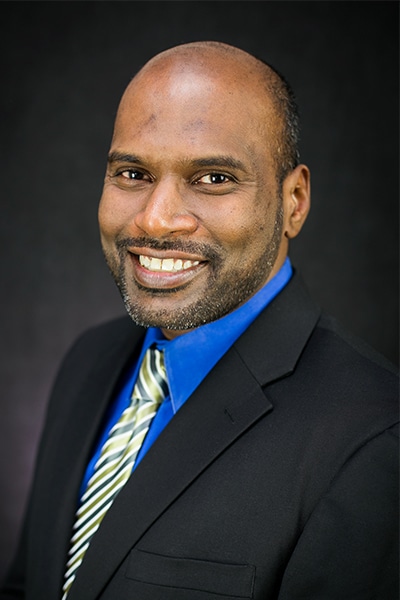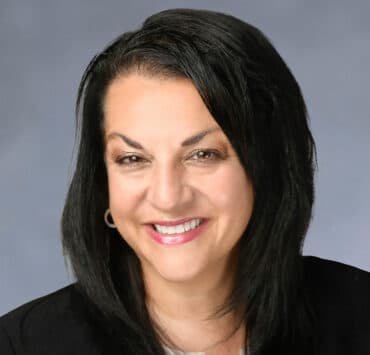One big misdiagnosis changed Suresh Namala’s life and set him on a whole new career path. Namala was thriving as a technology director for Expedia when ongoing pain sent him to the dentist. That’s where he heard that dreaded word: cancer. The talented professional and father of a young infant examined his priorities, organized his finances, and started to get his affairs in order. One month later, Namala received some surprising but welcome news. What the dentist had found was not cancer, but another easily treatable condition related to stress.

Seagen Courtesy of Suresh Namala
Namala had always been purposeful with his career choices. In fact, it was a passion for exploration and travel that motivated him to apply at Expedia. As he pondered his own cancer scare, his mind returned to his native India, where he had visited his dying grandfather in the intensive care unit. Namala recalled how the clinicians, equipment, medicines, and devices gave his family hope. As that memory lingered in his brain, the University of Nebraska–Lincoln MS and MBA graduate had an epiphany.
“I knew I could use my technology skills and work experience to make a difference in healthcare,” he says. “And I decided to find a job supporting a company that was developing medicines to help take care of patients.”
In the following days and weeks, Namala scoured the internet and mined his personal contacts for professional networking and career opportunities. But he wasn’t looking for any job—he was specifically looking to step into a leadership-level technology role at an impactful healthcare or life sciences company.
Before long, Namala found an opening at Seagen. The biotech company, with headquarters in the Seattle area, exists to “discover, develop, and commercialize transformative cancer medicines,” and is known for the antibody-drug conjugate (ADC) technology that powers most of its approved medicines. As Namala researched the company, he knew he had found a match.
“Seagen makes life-saving cancer medicines, and they needed someone to lead the team that helps keep the company’s IT systems safe, secure, and compliant. I knew it was the golden opportunity for me to combine my skills and passions,” he says. Namala applied, and in 2020, he stepped in as the organization’s executive director of IT security, governance, risk, and IT compliance.
“I knew I could use my technology skills and work experience to make a difference in healthcare. And I decided to find a job supporting a company that was developing medicines to help take care of patients.”
It’s an important role for the company at the frontlines of the fight against cancer. Namala leads a team of programmers and engineers. Together, they are responsible for IT security, IT compliance, governance, and risk. “Strong IT teams are critical for biotech and pharmaceutical companies because we want our researchers and scientists pursuing the innovations our patients rely on for care. We do our work so they can focus on their work,” Namala says.
Seagen’s ADC technology targets and attacks cancer cells. Unlike traditional chemotherapy, these antibodies specifically target certain proteins that are found on the surface of tumor cells.
That makes the intellectual property behind ADC a valuable trade secret that Namala must protect. He and his team have performed advanced threat modeling and implemented industry-leading cybersecurity measures to prevent attacks from hostile intruders looking to penetrate Seagen’s firewall and steal proprietary information.
Despite these steps, his team often detects attacks and other hacking attempts designed to breach the network. Because many incidents originate through phishing emails, the department has launched an internal awareness campaign so Seagen employees know how to respond to suspicious emails.
“I don’t even feel like I’m at work anymore. I don’t have a job . . . I’m on a mission.”
Namala’s team is also building important compliance and risk management functions. For compliance, it’s using Good Practice Guidelines & Regulations, a risk-based program that provides evidence for relevant audits and contributes to the department’s overall mission of patient safety, product quality, and data integrity.
Although Namala has logged twenty years in advisory, security, privacy, IT compliance, and IT operations, he had never before worked in the complicated healthcare space. Previously, he held positions at the University of Nebraska, the Nebraska Supreme Court, Deloitte, Microsoft, and Expedia. Namala says that mentors in his early career at Microsoft and Expedia, and supportive colleagues at Seagen prepared him for and helped him navigate the transition.
“Companies may shape you, but people make up those companies. Relationships matter,” he says. At Seagen, Namala found willing guides and took professor-led courses to learn more about biotechnology. The new knowledge helps him better understand the company as he and his team ensure it remains a safe and compliant enterprise as it expands globally.
Seagen is growing. At the start of 2020, the company had three approved medicines; now, it has four. Namala is maturing IT security and IT compliance measures and getting the right tools in place to help Seagen scale. In doing so, he has a new lease on life and the chance to make an impact in a new industry.
“I don’t even feel like I’m at work anymore,” he says. “I don’t have a job . . . I’m on a mission.”
Awake Security is proud to partner with Suresh Namala and Seattle Genetics on their cybersecurity objectives. In Suresh’s words, “Awake Security and their managed services have significantly enhanced our detection capabilities, enabling my team to focus on additional areas of the business that previously could not be attended to. Awake’s artificial intelligence is key to the security of our environment because it highlights malicious traffic patterns and speeds up response times.” Read more at awakesecurity.com.

